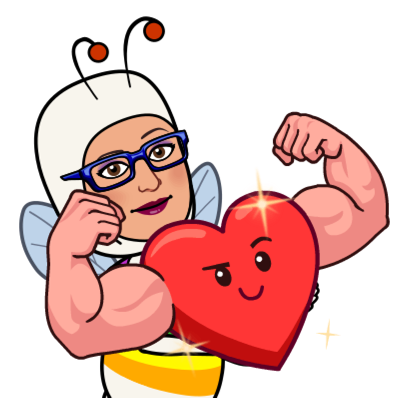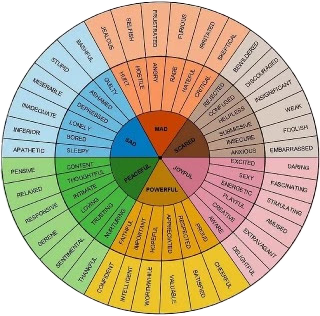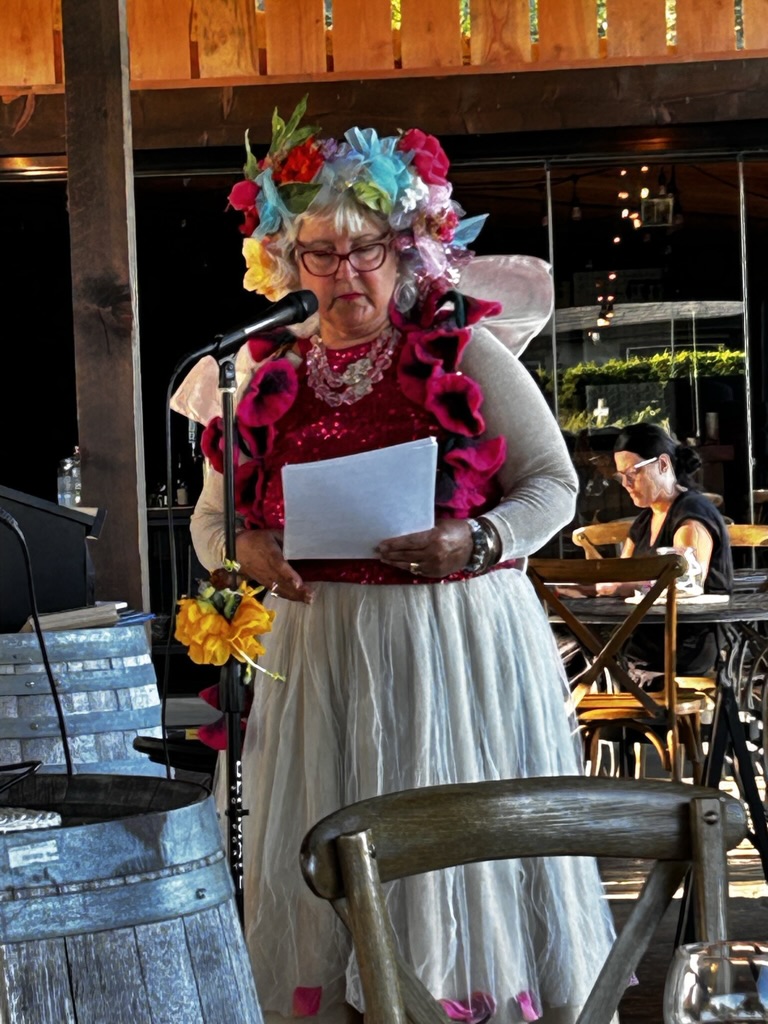As mentioned in part 1, I have been supporting someone dear to my heart as they battle addiction. At this point in the journey, we often converse as to the roots of this insidious disease and whether it could have been avoided. Knowing that I blog on parenting issues, this person has asked me to share a few pointers that they believe might help prepare children for the challenges of the future. I, too, have thought long and hard about the topic and have additional points for consideration. Our hope is that these 12 potential proactive points to ponder may help young parents in their parenting, with the intent of avoiding pitfalls that might contribute to their children being lured into the heartbreak of addiction.
First and foremost, there is no parenting manual delivered upon the arrival of our bundle of joy. We all come to the role with our own past experiences as a child and watching others model the role (or not). We may choose to research and read from a variety of resources in hopes of finding guidance. We might ask for advice or seek counselling. The bottom line is there is no tried and true way. For the most part, we follow our intuition and try our best at any given time. It’s the biggest journey of faith and trust we will ever take. Don’t beat yourself up!
These points are meant to provoke discussion and reflection. We can always look at what we are doing and consider, or not, whether it is worth adjusting our approach when tackling issues. The first four pondering points are those offered by the recovering addict, who has yet to don the role of parenting.

1) Emotional Identification
This is critical for all children, especially in our exceptionally complex, fast-paced world. Combining this point with the issue that many children are born highly sensitive, they can become very overwhelmed with feelings in our intense culture. Dr. Marc Brackett makes this point in his book, Permission to Feel. Brené Brown also offers adults and children a great resource, Atlas of the Heart, where she guides us in identifying the 87 human emotions and experiences.
As a former kindergarten teacher, I can tell you that little boys are just as sensitive and emotional as little girls. As a matter of fact, in some ways, generally, little girls exhibit more sophisticated networking, social/emotional identification and regulation. I’d suggest that little boys just might need extra support and coaching through their emotional development.
Inside Out is a film that this person in recovery highly recommends to adults and children. Their first viewing of the film was as an adult. Although they say it is pretty intense, they do believe that it is a great film to stimulate awareness and discussion with children of all ages and can be rewatched for purposes of digging further down into self-awareness.
This chart was shared by the person in recovery and was used during their treatment.
Often addiction is triggered by misunderstood feelings, hence having a strong understanding and ability to articulate feelings is critical.
2) Emotional Regulation. Teach Self-soothing Strategies
In alignment with emotional identification, regulation is imperative. Yes, schools and parents have become more effective in approaching self-regulation through social skills and anti-bullying programming; however, our complex world of intense temptation and allurement is requiring us to help our children discern and cope using a more articulated arsenal of self-regulation strategies.
In days of old, it seemed to suffice to say to our kids, ‘just don’t engage, be happy, play sports, just don’t worry, everything is going to be okay’, and the many other platitudes that were thrown out to redirect our kids’ thinking. Or the classic, “Suck it up, buttercup!” Grit and soldiering onward are/were valued. Strength is great but if it is attained by the sacrifice of one’s own peace of mind, this becomes a problem.
In a culture where addiction grows like wildfire (including behaviours beyond alcohol and drugs such as shopping, eating, gambling, gaming, social media and pornography), children need more than ever to know about their bodies and how bodies produce feel-good chemicals. This is a great post as an overview of our body’s feel-good chemicals.
A friend of mine, a grandmother and former teacher, who is home-schooling her grandchildren, is introducing them to the knowledge about these chemicals and helping the children identify healthy activities which will naturally produce these chemicals. They experiment with engaging with a variety of feel-good activities, such as puzzle solving, cardio activity, listening to music, dancing, or playing memory games and then discussing the changes in how they feel. The hope is that she is preparing the children to identify healthy ways to self-soothe and self-treat negative feelings naturally.


3) When Old Enough, Disclose Family History and Predispositions
When you think your pre-teen or teenager can handle the information, let them know about the health and behaviour history of family members. If there is a history of addiction in the family let it out. Discuss the patterns of behaviour and the potential for a predisposition of this behaviour to be repeated. Talk about family trauma and how this can place family members at risk. All this might need the support of family counselling.
The person in recovery mentioned that they had 23 And Me DNA analysis done as an adult and then went to a naturopath who was able to apply the raw data to a specialized analysis app. It was found out that this person was predisposed to addiction. Consequently, in retrospect, this person is thinking that had this DNA testing been done as a teenager, they might have had greater awareness and heeded warnings. This would be similar to a person being aware that they might have a fatal peanut allergy.
4) Be Vulnerable with Your Kids
It’s great to project strength, conveying to your kids a level of security and trust, but it is also okay for your children to see that softer, more vulnerable side. Sometimes they think that they can’t express their own vulnerabilities because they need to be strong and perfect like their role models. When showing vulnerability, it’s a great way to model how to cope and be resilient. This article illustrates the power of vulnerability. It is particularly helpful for highly sensitive children.
5) Kids Are All Different.
Yes, we can say we raised them all the same but they each have their own perceptual filters. There are children who are atypical, or neurodivergent.
For instance, children who are Highly Sensitive Persons (HSP), process their emotions and world experiences far more intensely than the average person. Elaine Aron began researching sensitivity in 1991. Her site offers a bounty of information and resources to help understand HSP characteristics and how to best support this personality type.
In addition, there are mental health conditions that can present a host of unique perceptions and behaviours such as Attention Deficit and Hyperactivity Disorder, Oppositional Defiant Disorder, Anxiety Disorders, Depression, and Autism. When these varied neurodivergent brain processes combine, a person can be at higher risk for addiction. Interestingly, the person I’ve referred to in this blog was diagnosed with ADHD as an adult and since childhood presented as an HSP. Both ADHD and HSP people have been shown to be at higher risk for addictive behaviour.
As a teacher, I’ve seen kids medicated with concerning results and I’ve seen children thrive with great success on medication. Often kids exhibiting neurodivergence also demonstrate learning disabilities along with executive functioning challenges. The important point is that, at a bare minimum, the sooner a child is diagnosed, coping skills can be taught and supported.


6) Parentification, Enmeshment, Fusion or Bonds That are Too Close
Can we love too much? This is such a complex topic that is often avoided. We all want to encourage close family ties. It would be safe to say all family systems are unique and rest on a continuum. The goal is to achieve the balance between close bonds and independence and personal space. When family members are too involved in controlling other members’ lives, boundaries become unhealthy. Independence and growth are stifled. The oppressed member(s) can lack or lose their sense of identity. This breeds insecurity and covert behaviour that often extends into adulthood.
Exceptional parental influence is problematic. At one extreme, parentification is when parents constantly look to their children for emotional or practical support and as such view their child(ren) as a spouse substitute. On the other hand, parents might not look to their child for emotional support but place great degrees of control with guilt, forcing their expectations on the child with little or no regard for the child’s interests or dreams. Ultimately the family system is deeply rooted in guilt, obligation and loyalty at the expense of the individual. Here’s an article further explaining parentification.
Can enmeshment or fusion happen in a family where there is no parentification? Yes, this can occur when a highly sensitive child picks up on subtleties and nuances in the family dynamics and, without invitation, takes it upon themselves to help or fix problems for family members. In addition, these highly sensitive children can see skewed boundary issues that get presented by the extended family, so cross-generational unhealthy boundaries persist.
Ultimately, without healthy boundaries, co-dependent or enabling behaviour manifests. These types of behaviour patterns set the foundation for addiction. This is why it is said that addiction is a family disease.
7) Stretching Limits
We want to develop grit and resilience in our children but sometimes we can be too quick to relieve discomfort, rescue or make things easy. It’s okay for us to challenge our kids to stretch with activities that bring mild discomfort without being extreme or traumatizing.
I remember my father taking us on a variety of hikes that often pushed us to go that little bit further than was comfortable. Did it bring a host of complaints from my brother and me? Yes, my father ignored the complaining or tried to distract us. Did we get through it? Yes, and when all was said and done, we were proud of the accomplishment and learned to push through moments of discomfort.
There is a TED Talk video by Joachim de Posada, demonstrating the results of the Don’t Eat the Marshmallow Yet experiment which links children who are able to delay gratification with greater success later in life.
Addiction feeds on restlessness and impulsivity. Learning to keep this at bay can potentially harness these feelings and help support the resolve needed when individuals face the tough road to recovery.


8) Embrace Failure and Problem-Solving with Reframing
We live in a picture-perfect world of competition and selfies! Culturally, we are obsessed with social media, marketing, extreme positivity and comfort. Despite all our self-reflection, humility is often lost as the end game seems to be clawing our way to the top of the pile to be the winner or example of perfection.
It’s okay to fail. These are life lessons. When we don’t heed our life lessons, they return with a bigger struggle or challenge to get us to pay attention and reform. We can’t hear this message enough. Strength is built through identifying where we can improve.
One of the toughest experiences is watching your child suffer. Instinctively, we parents want to protect our kids. It has been said that we are only as happy as our unhappiest child. Add to this the stress and demands of our own relationships and work lives and, bingo, we kick it into high gear, controlling or rescuing our kids by putting out ‘stress fires’. It seems like the easiest way to relieve our own stress and anxiety.
This might seem to take away the immediate stress, but, in the long haul, we might be teaching our children dependency, enabling a victim mentality, encouraging entitlement, or undermining their own self-confidence. Rather than taking over control, we need to have the patience and take the time to help our kids sort out a problem without directing or giving solutions. We need to focus on asking questions and listening with the intent to seek to understand. It is in doing so that we can help our children to reframe issues and come up with their own possible solutions.
When faced with addiction, people need to view it not as a permanent failure. It’s a problem to solve. One therapist said, “Think of addiction as your friend; it is telling you that your life is out of balance and you need to fix things.” That is a perfect example of learning to optimistically reframe a problem and seek solutions.
9) Balance Structure with Creativity
Some children need more structure than others. I’m a very creative person and like options. Often, I bounce from one project to another or become easily distracted. As a teacher and parent, I have had to keep my desire for freedom in check as I know that my wild freehand embraces creative opportunities, which can drive others who need and thrive on structure crazy. It’s keeping things in balance. We all need routines, but we also need to be flexible. Typically, addiction attracts a mindset of all-or-nothing and impulsivity.
10) Intrinsic Rewards and Self-Discipline
Oh, goodness, this topic is a sensitive one for me. For years, I would hear fellow teachers praise colleagues for being strong disciplinarians. The focus was not on children participating in self-regulation but on the adult controlling the child through intimidation. Basically, the child engages in conflict avoidance while the adult imposes fear-based bullying that might is right. Ultimately, it boiled downs to encouraging the child to be a pleaser.
The other approach, which I tended to adopt, is using rewards to control and although this is more positive, it can be just as damaging. Again, like the other approach, it can foster pleasing and competition. Gold stars and pats on the backs become the motivator for ‘good’ behaviour. What happens when the positive reinforcer is not available?
As a child matures, are they able to engage in an activity for personal satisfaction and accomplishment? Here is an article that offers a balanced perspective on intrinsic and extrinsic rewards, something to consider when trying to guide our children in developing their sense of decision-making and independence.


11) Embrace Age-Appropriate Failures and Struggles
Which is easier, a child learning delayed gratification when they are a toddler or at elementary school age or when they are a teenager faced with the temptations of a thrill activity or drugs? It’s much easier to deal with a younger child’s tantrums than the results of the ineffective choices of engaging in risky impulsive behaviour. What is the saying …‘bigger kids, bigger problems?” Need I write more?
12) Listen to Your Kids When They Tell You About Themselves
The recovering addict that I have been supporting told their parents that they were an addict when they were in their late teens. Given all the drama and current cultural trends around interventions (reality t.v. and current news), and the tendency for this young person to be dramatic, the parent dismissed the statement. The parent thought that the statements were an overreaction and that their child was experimenting with drinking and learning limits through experimentation as typically happens with young people. The parent focused on the hard work and achievements of the young person, not further questioning the young person’s statement of being an addict. The assumption: everything would work its way through and be okay.
Not! This statement was a proper self-assessment by this young person which was ignored. Maybe if this statement had been pursued and the individual challenged, recovery might have begun years prior.
On this point, here is a post written around Maya Angelou’s statement, “When people show you who they are, believe them.” It’s a great reminder for us all in all aspects of our lives, not just parenting.
In summary, parenting is not easy. It is probably the toughest role you will assume in your entire life. It will bring the most joyful soul-seeded moments and the most heart-wrenching. No matter how hard we try, there is no such thing as the perfect parent. We all do the best we can do, with the knowledge and skill we have at the time.
On the other hand, what we can do is keep our eyes and ears wide open so that we can ponder thought-provoking points that can motivate us to proactively pivot on our parenting choices so that we can prepare our children to potentially avoid
the pitfalls of the disease of addiction. These 12 proactive parenting points are humbly presented by two people battling the disease, trying to make sense of how it began.
Parenting is like addiction recovery; it requires what I call a mindset of optimistic resolve (MOR), day by day and moment by moment.
Dig Deeper
A good article about sensitive kids:
A great directory resource of inspiring films:
Angela Duckworth and Sal Khan speaking about Grit as applied to parenting:
Self-soothing strategies for kids:
Resiliency:
- https://www.heysigmund.com/building-resilience-children/
- https://www.apa.org/topics/resilience/guide-parents-teachers
- https://childmind.org/article/can-help-kids-self-regulation/
Parent vulnerability – An interesting article:
ADHD and High Sensitivity:
- https://www.additudemag.com/hypersensitivity-disorder-with-adhd/
- https://www.atlaspsychologycollective.com/blog/highly-sensitive-child-parenting-strategies
ADHD and Addiction:
Boundaries and Parenting:
Brené Brown:









[…] Next Post […]